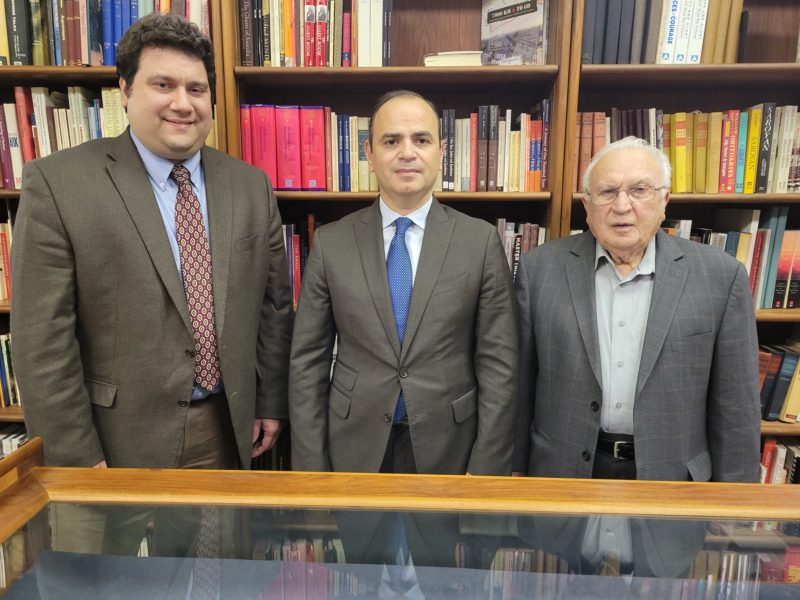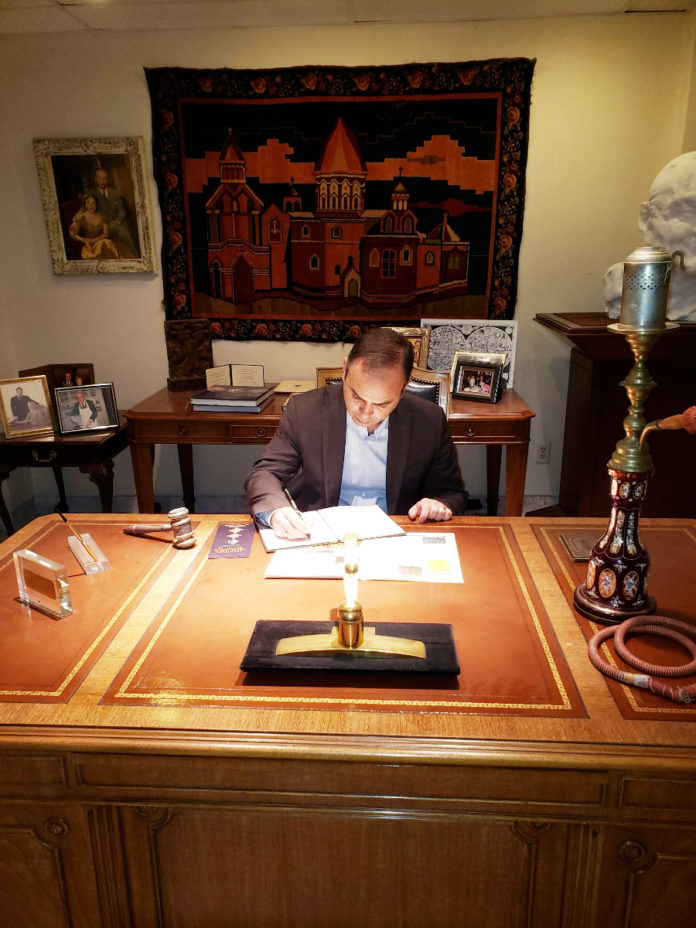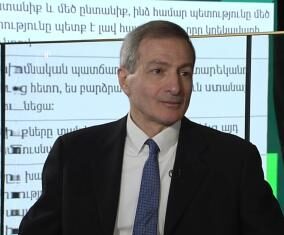DETROIT — For the past week, High Commissioner for Diaspora Affairs of the Republic of Armenia Zareh Sinanyan has been visiting Armenian communities in the United States in the Midwest and West Coast regions.
Touching down at Detroit Metropolitan Airport directly from Europe on Wednesday, June 1, Sinanyan along with advisor Margarita Baghdasaryan met with Detroit’s Armenian leadership and organizations and then moved on to Chicago where after similar meetings, they continued to California.
An interview was conducted by Senior Editorial Columnist Edmond Azadian and Staff Writer Harry Kezelian at the Edward and Helen Mardigian Library in Southfield.

Sinanyan, whose office has been under criticism recently along with the rest of the government of Prime Minister Nikol Pashinyan for its handling of the Artsakh war in 2020, has embarked on a fence-mending mission with diasporan communities.
He said, “In the immediate aftermath of the ceasefire, clearly there is apathy, disappointment, and loss of confidence in many segments of the diaspora. And it’s natural; it’s the same type of sentiment that you would hear in Armenia. The only difference is people in Armenia don’t have a choice but to revive quickly and move on with life.”
Criticism has come from many camps, but especially in the Diaspora.









